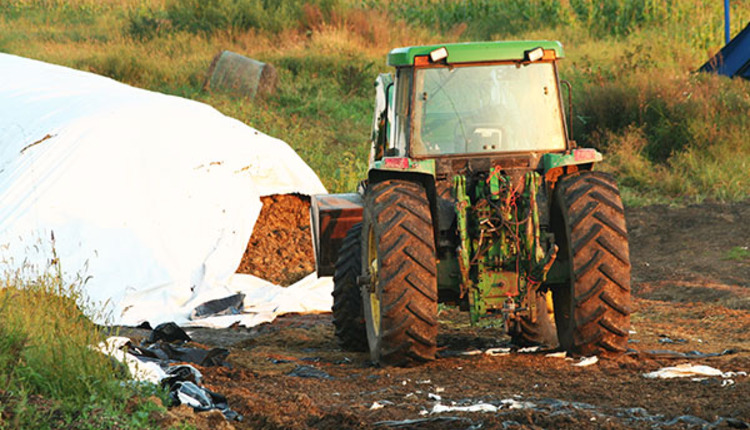
We live in a world of plastic. If something isn’t made of plastic, chances are good it’s packaged in plastic. Agriculture, specifically livestock farms, use and generate tons of plastic each year in the form of silo bags, bunker/pile silo covers, baleage wrap and bale twine.
Efforts to recycle agricultural waste plastic have had limited success in most states. To date, it’s been difficult to estimate exactly how much plastic is used on farms. Recently the University of Wisconsin-River Falls Survey Research Center teamed with the University of Wisconsin-Extension, Organic Valley Cooperative and the Wisconsin Department of Natural Resources to survey dairy producers in Wisconsin. The results of the study, Waste Agricultural and Film Plastic Survey, Wisconsin 2015, indicate that 84 percent of dairy farmers and 92 percent of organic dairy farmers generate plastic waste.
The study found that:
• 60 percent of nonorganic dairies and 50 percent of organic dairies generated silage bags
• 70 percent of organic dairies and 45 percent of nonorganic dairies generated bale wrap
• 34 percent of nonorganic dairies and 10 percent of organic dairies generated bunker silo cover waste
• 65 percent of nonorganic dairies and 60 percent of organic dairies generated bale twine
• 66 percent of organic dairies and 48 percent nonorganic dairies generated bale netting
The study also determined that landfilling is the most frequent disposal method for most plastics with the exceptions of pesticide containers, farm plastic containers, and other chemical containers, which are more often recycled.
Disposal by burning ranked second for five plastics: silage bags, bale wrap, bunker silo cover, bale twine, and bale netting.
The survey indicated that farmers would be willing to participate in recycling under various conditions. Sixty-seven percent indicated they would be willing to transport their waste plastics at least 10 miles to a collection point if free recycling was provided. This compares to 55 percent who indicated they would be willing to participate in a program that provided free on-farm pickup.
Many farmers said they would be willing to pay for this service. Thirty percent would participate if monthly costs were $50 or less and 11 percent would be willing to pay between $50 and $99 monthly for the pickup service.
The study was financed through contributions by Organic Valley Cooperative, the University of Wisconsin-Extension Solid & Hazardous Waste Education Center, and Crave Brothers Farmstead Cheese Company.
The full report can be found here on the Wisconsin DNR website.

